Liquid Citizenship
2015, online
commisioned by Victoria and Albert Museum, London
All of This Belongs to You
Jorge Otero-Pailos, James Bridle, Natalie Jeremijenko, Muf architecture/art, Femke Herregraven, Kyle Mcdonald
Victoria and Albert Museum / London (UK)
1 April – 19 July 2015
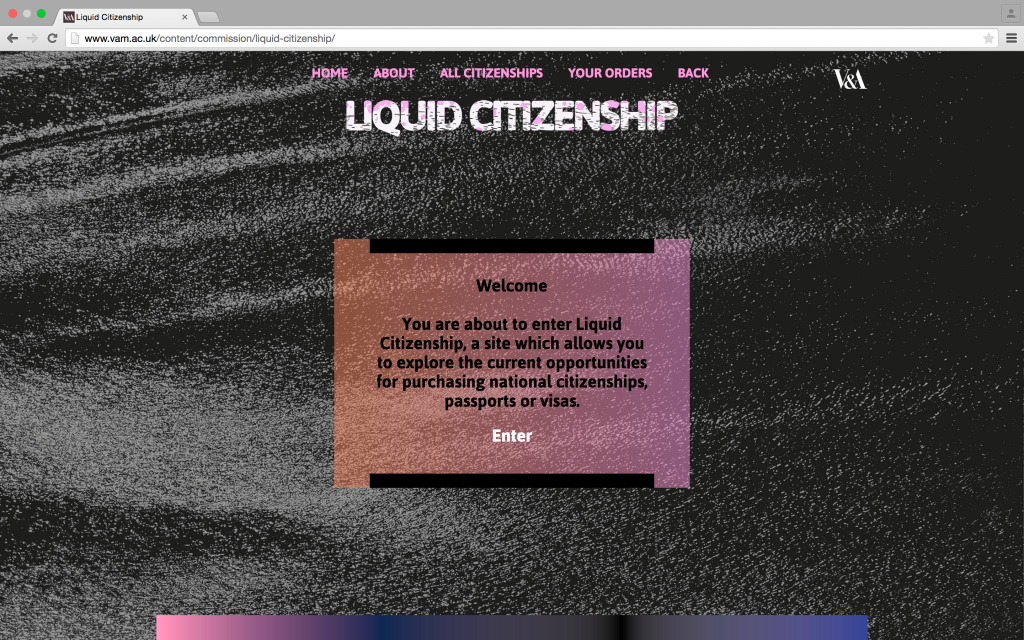
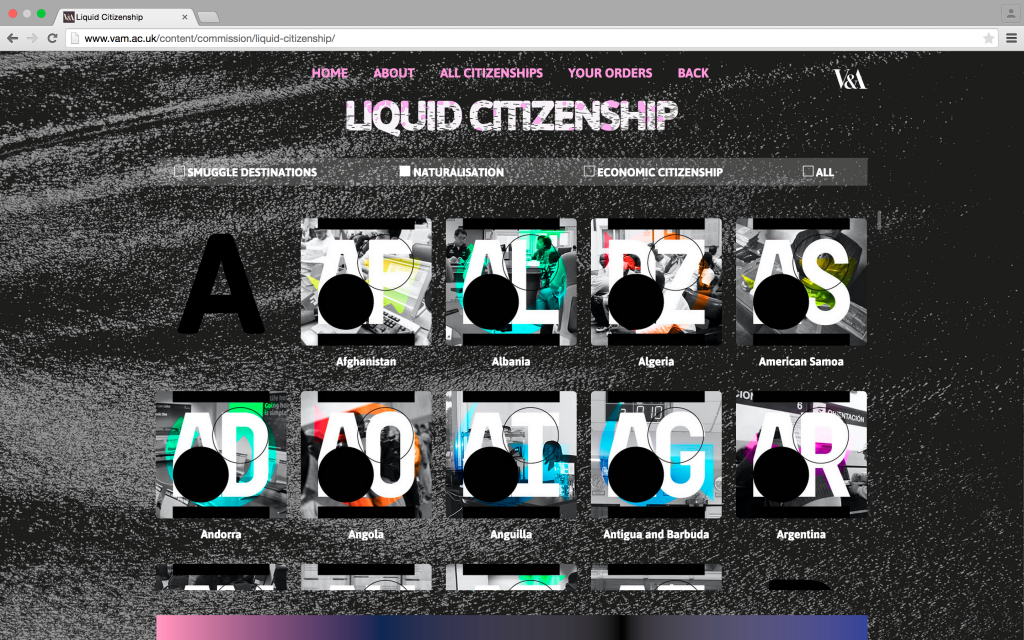
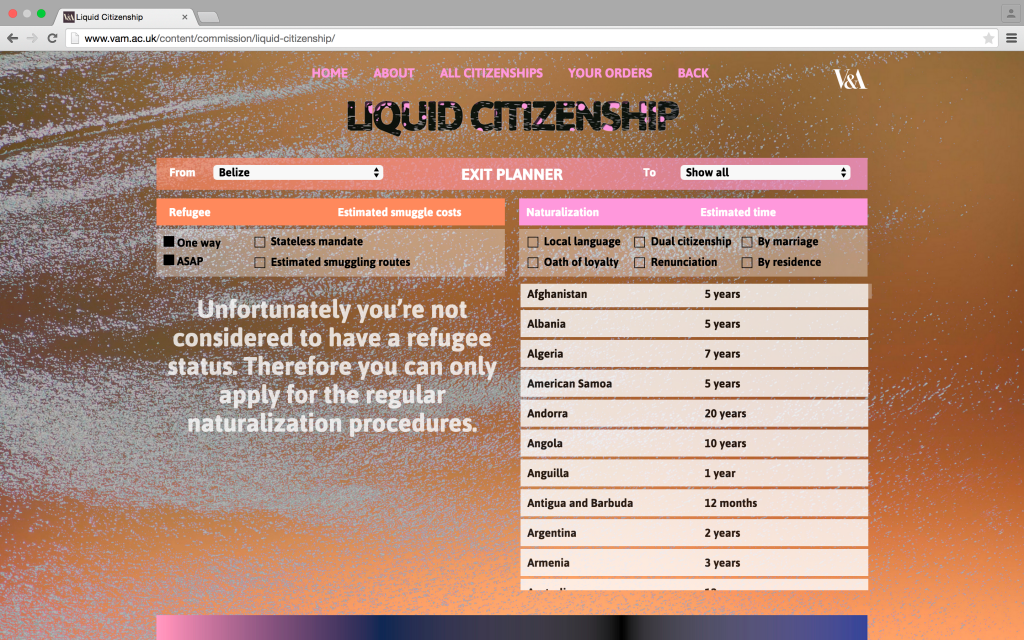
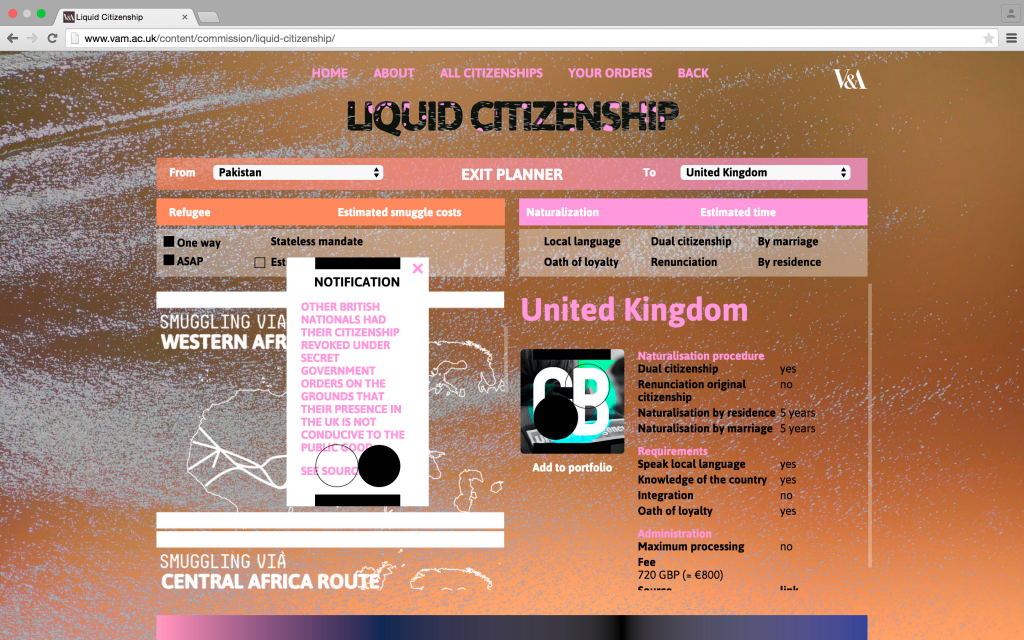
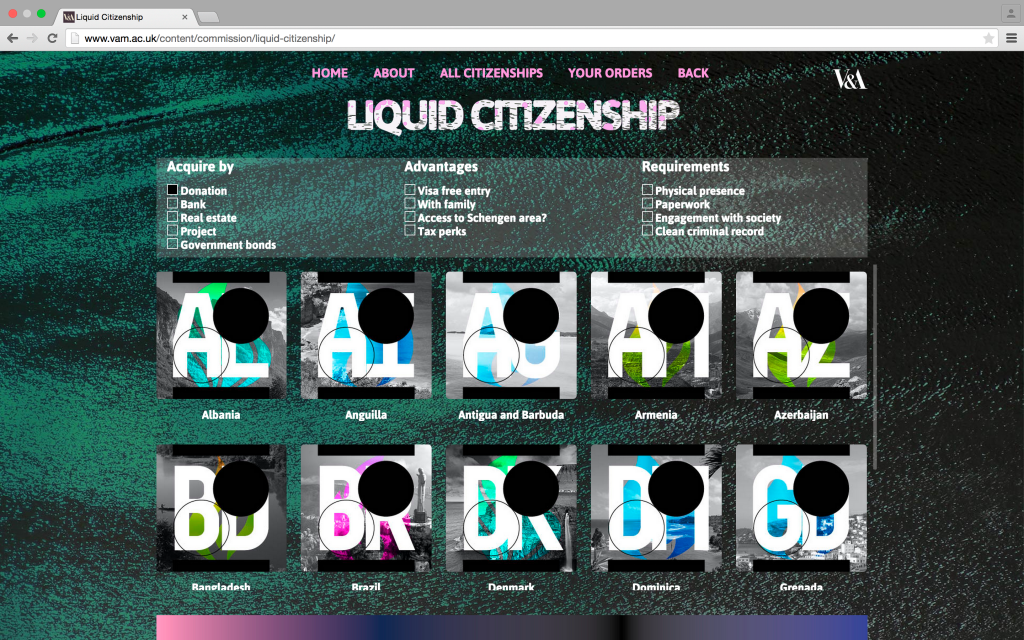
Liquid Citizenship
The idea of national citizenship today has become liquid. It is no longer necessarily a product of your culture or nationality, but an asset to be purchased, traded or revoked. Liquid Citizenship is a site which gathers together international data on citizenship opportunities and exemptions, enabling you to explore the offers available for purchasing a national passport, or acquiring citizenship through other means, such as naturalisation, people smuggling or asylum seeking.
In the cosmopolitan utopia, citizenship operates increasingly through commodification and confiscation. On the one hand, the emerging ‘economic citizenship’ – aka citizenship by investment or golden visas – allows individuals to buy themselves into a country and benefit from its lax tax and other liberal regulations. Under increasing pressure to generate investment, countries opt for selling passports for high returns. African and South American countries and small islands promote and sell citizenships to create their gateway to the global economy. Now, indebted Eurozone countries have also started selling golden visas to generate investment. In that sense, economic citizenship is a high-end commodity only accessible to elite consumers. Others who want to establish a new citizenship are limited to bureaucratic naturalisation procedures. However, the most precarious group consists of people who don’t have the legal means to gain citizenship unless they first flee their country of birth. Although a new legal status isn’t a luxury good for them, it doesn’t come cheap. Refugees have to pay thousands of dollars and possibly with their lives to be smuggled across international borders. In a globalised world, citizenship generates a high-level liquidity in all sorts of markets. With an annual profit of between 3 and 10 billion US dollars, human traffickers are now the world’s largest travel agency, albeit illegal.
In contrast to commodification, governments are increasingly rescinding citizenship to prevent citizens from or punish them for engaging with ‘hostile’ ideas or groups. Today, revoking citizenship and passports, and denying citizens the right to return from abroad are all part of European and North-American counter-terrorism strategies. With several ongoing crises in the Middle East, Western countries increasingly opt for the denaturalisation of citizens convicted of terrorism-related offences. For example, in a highly secretive process the British government stripped a substantial group of individuals of their citizenship while they were abroad. Although they had been accused of terrorism none had been convicted and some of these former British citizens were later killed by US drone strikes. The UK leads in citizenship deprivation and has stated that citizenship is a privilege, not a right, that can be taken away from individuals if the authorities decide it is in the public’s interest to do so. When citizenship is conceptualised as a contract that expires with misbehaviour, numerous questions arise. By which ideological flux is ‘misbehaviour’ determined, and by whom, and what happens to people who become stateless because of loss of citizenship?
In a landscape where the liquidity of citizenship is accelerated by commodification and deprivation, Liquid Citizenship offers a glimpse of the increasing possibilities of how this legal status can be dropped and picked up at will – or by force.